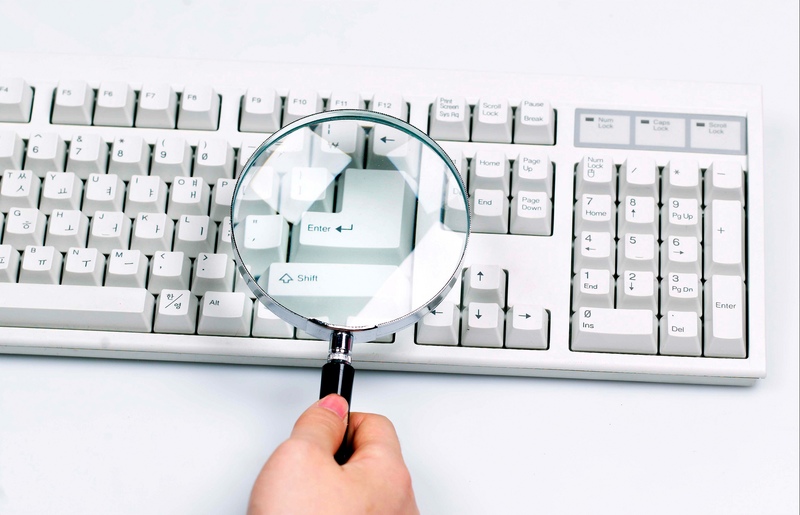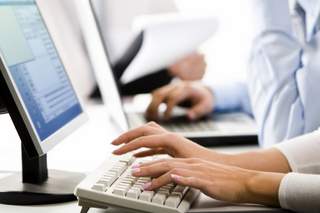Email etiquette: Bad habits to break and new rules to follow
Email is the most common form of office communication — used more than meetings, phone calls or instant messages. But precisely because it’s such a workhorse, email is prone to abuse. Professionals sometimes get lazy and allow bad habits to creep in. Even worse, emails gone awry or astray can leave you looking unprofessional.
You’ve been using email for years, but are you doing it right? Here are some bad habits to watch out for — and break right away.
Not proofreading
A work email is just a business communiqué sent electronically, yet people frequently don’t bother to check for errors. Sloppy messages reflect poorly on the writer, so make it a habit to reread every email — no matter who it’s to or what it’s about. This is especially important if your email has an autocorrect function. Rereading also helps reduce the chances you’ll forget an attachment or send something you’ll later regret.

Being too informal
The tone of the message should reflect your relationship with the recipient. However, watch your level of informality lest you come across as unprofessional. Be judicious in your use of exclamation points, emoticons, colored text, SMS shorthand (“u” for “you,” “ur” for “your” or “you’re”), all lowercase or caps and fancy fonts.
Going too long
Lengthy blocks of text are hard on the eye – better to break them into short paragraphs. Bullet point and numbered lists are also easier to digest. Use bold and italics — but sparingly — to highlight important parts of your message.
Going too short
On the other extreme, avoid one-word replies. For example, if you get an email that requires a simple answer, don’t write just “yes” or “no,” which some may interpret as abrupt. Tap out at least a complete sentence and add a signoff. Why? Tone is difficult to convey in writing. Therefore, the shorter the response, the more the recipient can come away with an unintended meaning.
Sending megafiles
Attaching 10MB files is a breach of email etiquette. Some servers don’t handle large attachments well, and your huge .pdf, .ppt or .mov file either won’t go through or could wreak havoc on the recipient’s inbox. Better to use an online service such as DropBox, Hightail (formerly YouSendIt) or DropSend, or your company’s internal file transfer program.
Hitting “reply all” unnecessarily
Emails are a great way to communicate with a large group. Unfortunately, that’s also one of their downfalls. Email storms start with a message to the entire list, snowball when several people reply-all, and really get out of hand when others reply-all asking to be taken off the list or telling everyone to stop. A simple email etiquette rule: The more recipients there are, the more careful you should be before hitting “reply all.”
Mixing work and personal
Using company email for personal reasons is not only annoying, but it’s also poor workplace etiquette. If you have jokes, memes or video links you’re just dying to share, send them to your co-workers’ personal email addresses from your personal account. Above all, never send NSFW (not safe for work) content via work email. Transmitting racy or objectionable messages could land you in hot water and possibly cost you your job.
Now that you know which bad habits to break, here are two new email etiquette rules to follow.

Make the subject line count
An email with “Hello” as the subject says nothing and might even be filtered out as spam by some systems. If a message is worth writing, it deserves a descriptive header. If you want the recipient to revise the Q3 report by Friday, a subject line of “Please revise Q3 report by Friday” is much more effective than just “Report.”
Write with authority
Some office workers want to avoid coming across as brusque or demanding. But in their effort not to offend, their emails sound weak and apologetic. If you want to be taken more seriously, make it a habit to write courteously yet with authority:
Don’t apologize when asking for something you have every right to ask for.
Be sparing in your usage of “I feel …” or “I think …” Get to the point rather than dance around it.
Don’t automatically close with “Thanks” unless you’re asking someone to do something. “Regards” is a polite, professional and neutral signoff.
Basic email etiquette boils down to being professional and putting yourself in your recipients’ shoes. Treat your emails as you would business letters, which they are, and you can be confident your messages will be signed, sealed and delivered professionally.
(Picture Source: Internet)
HRVietnam - Collected

